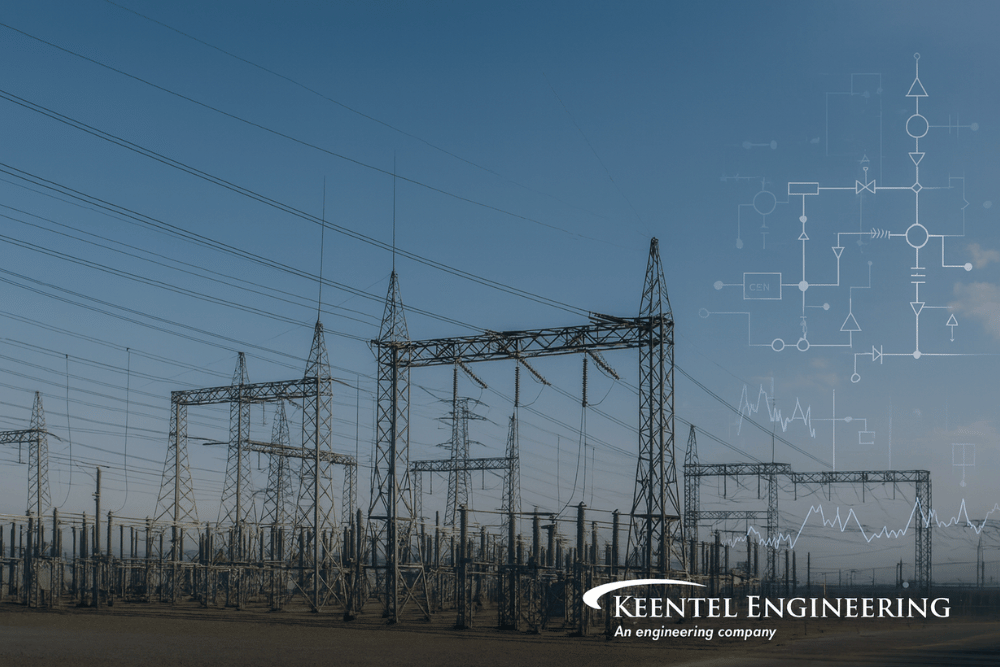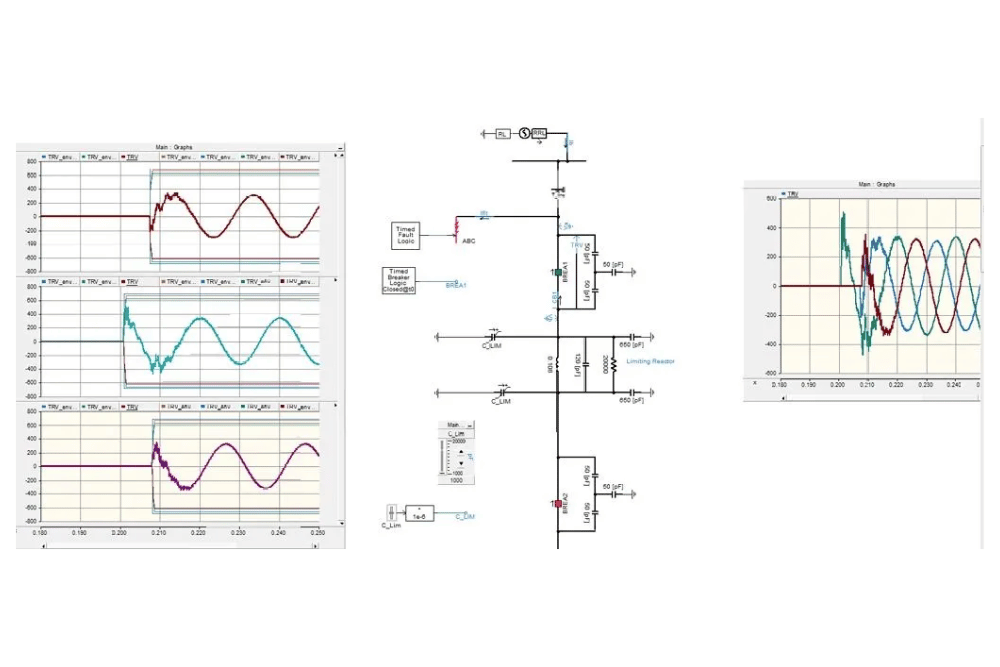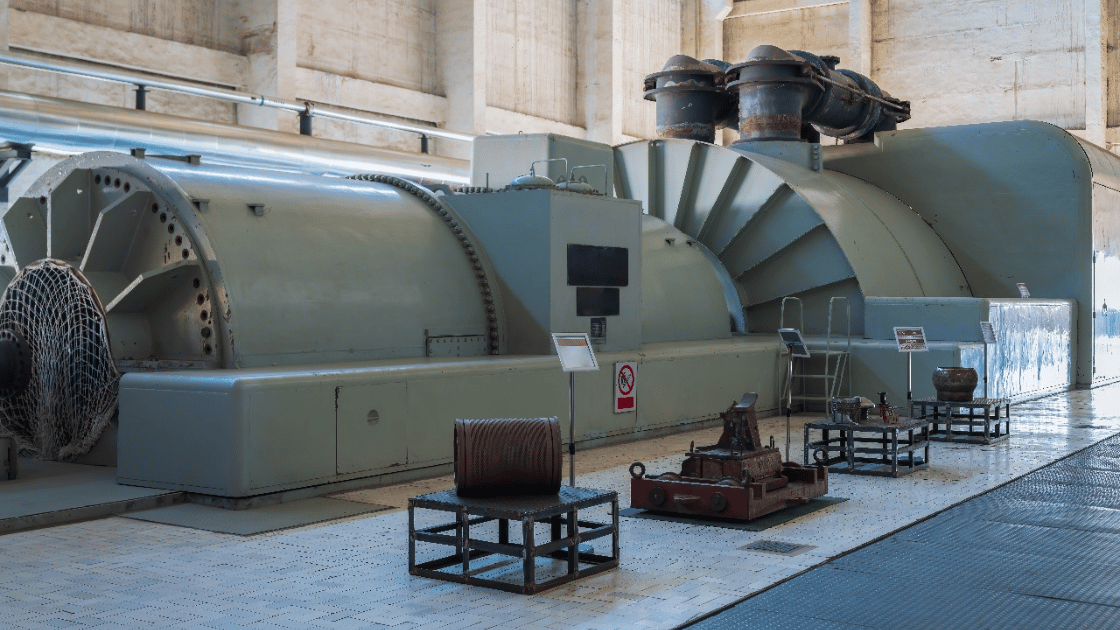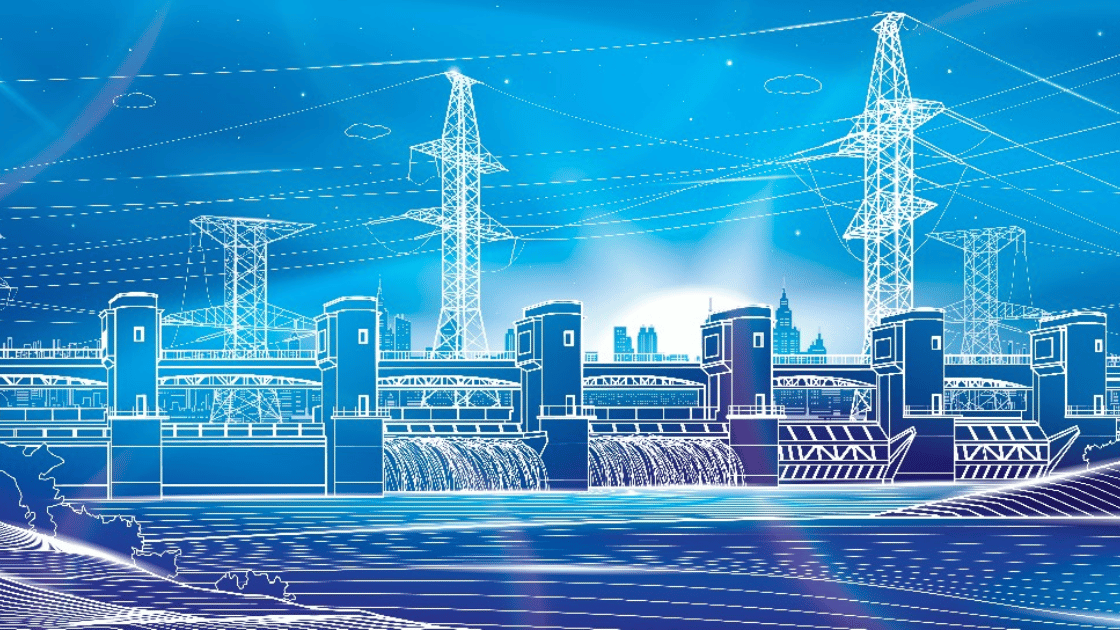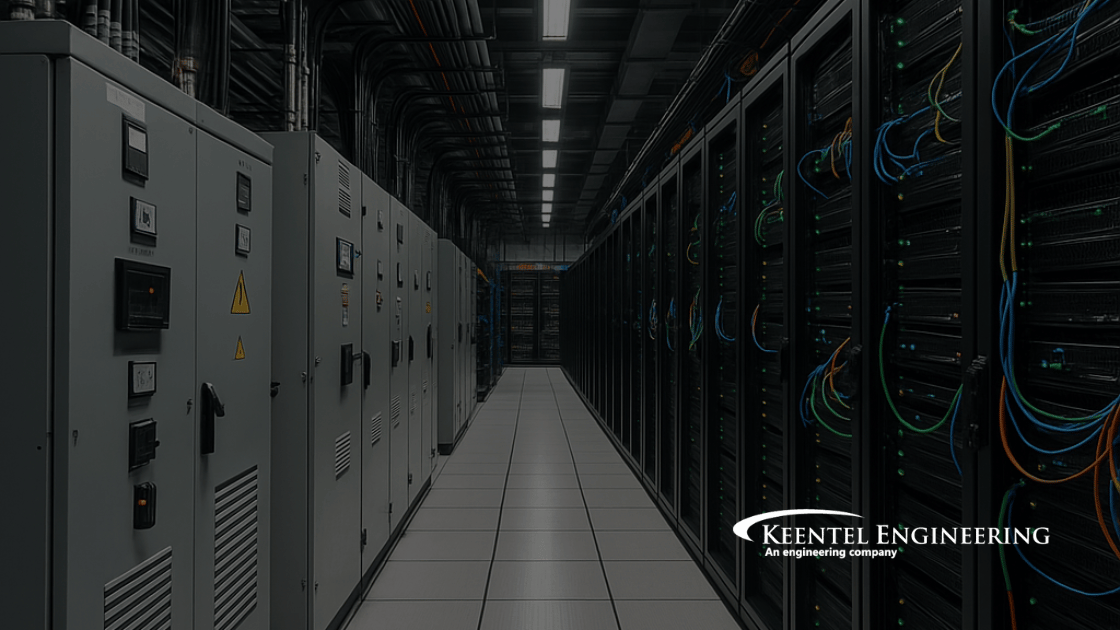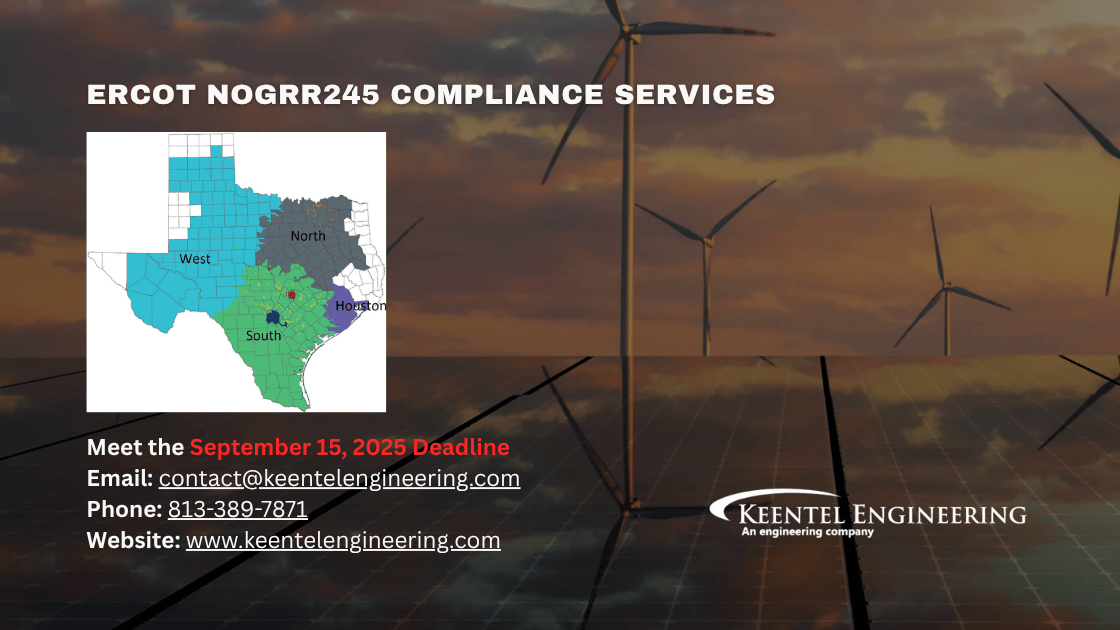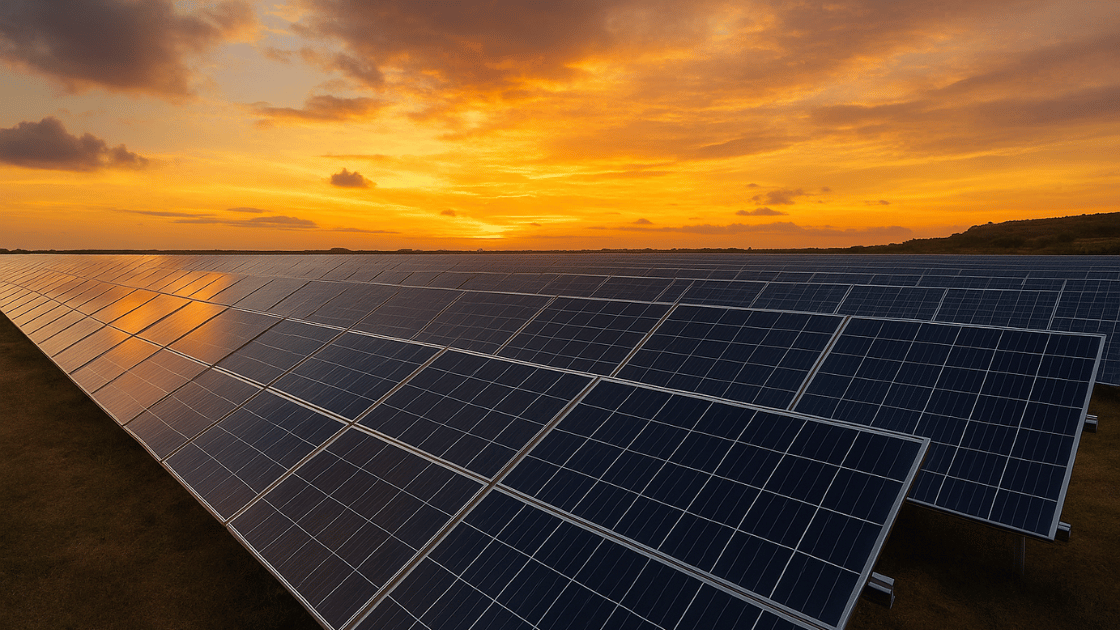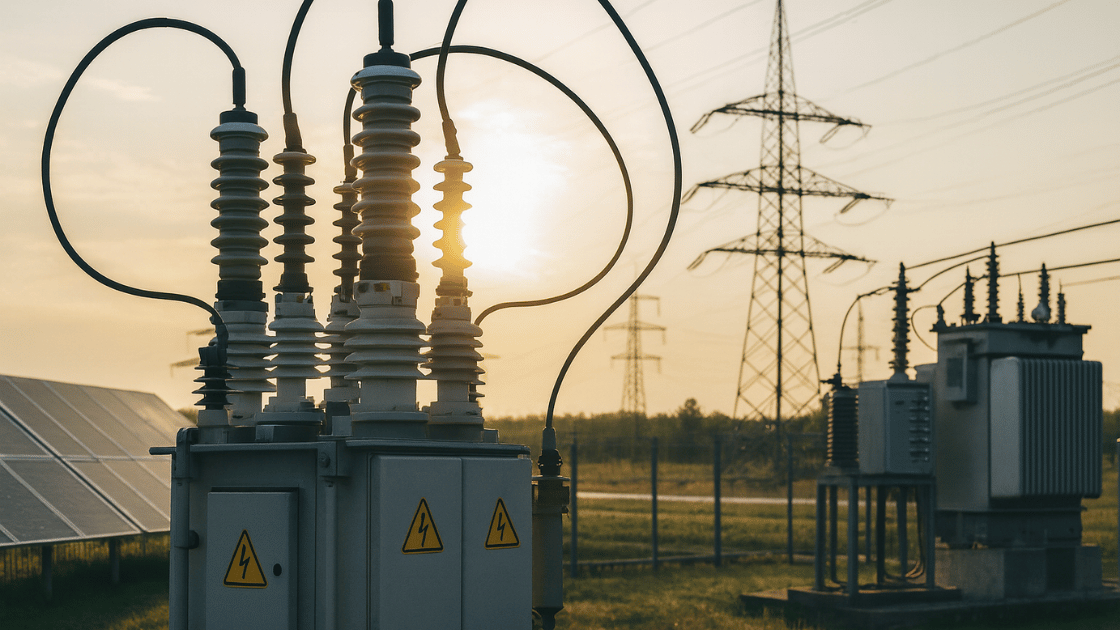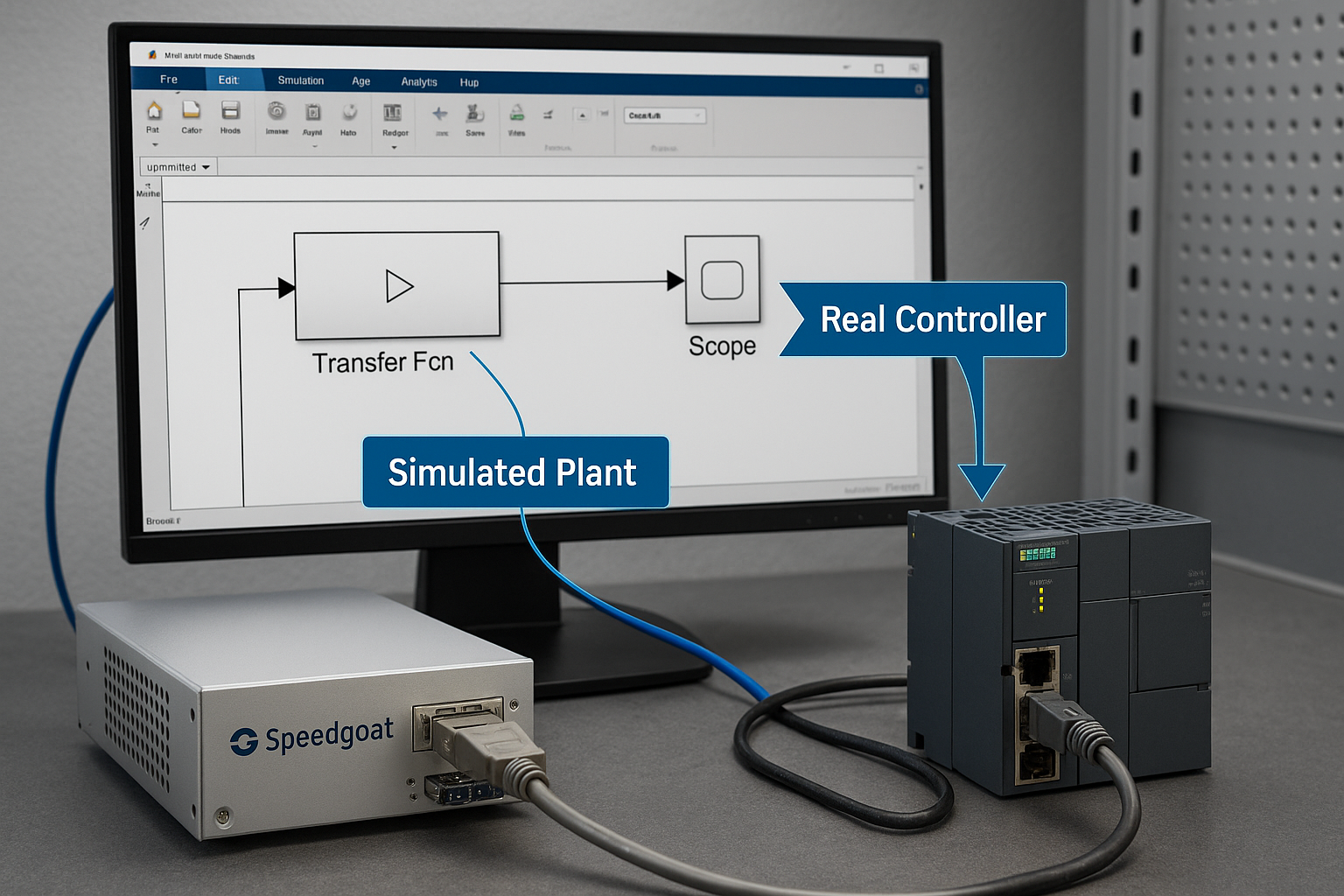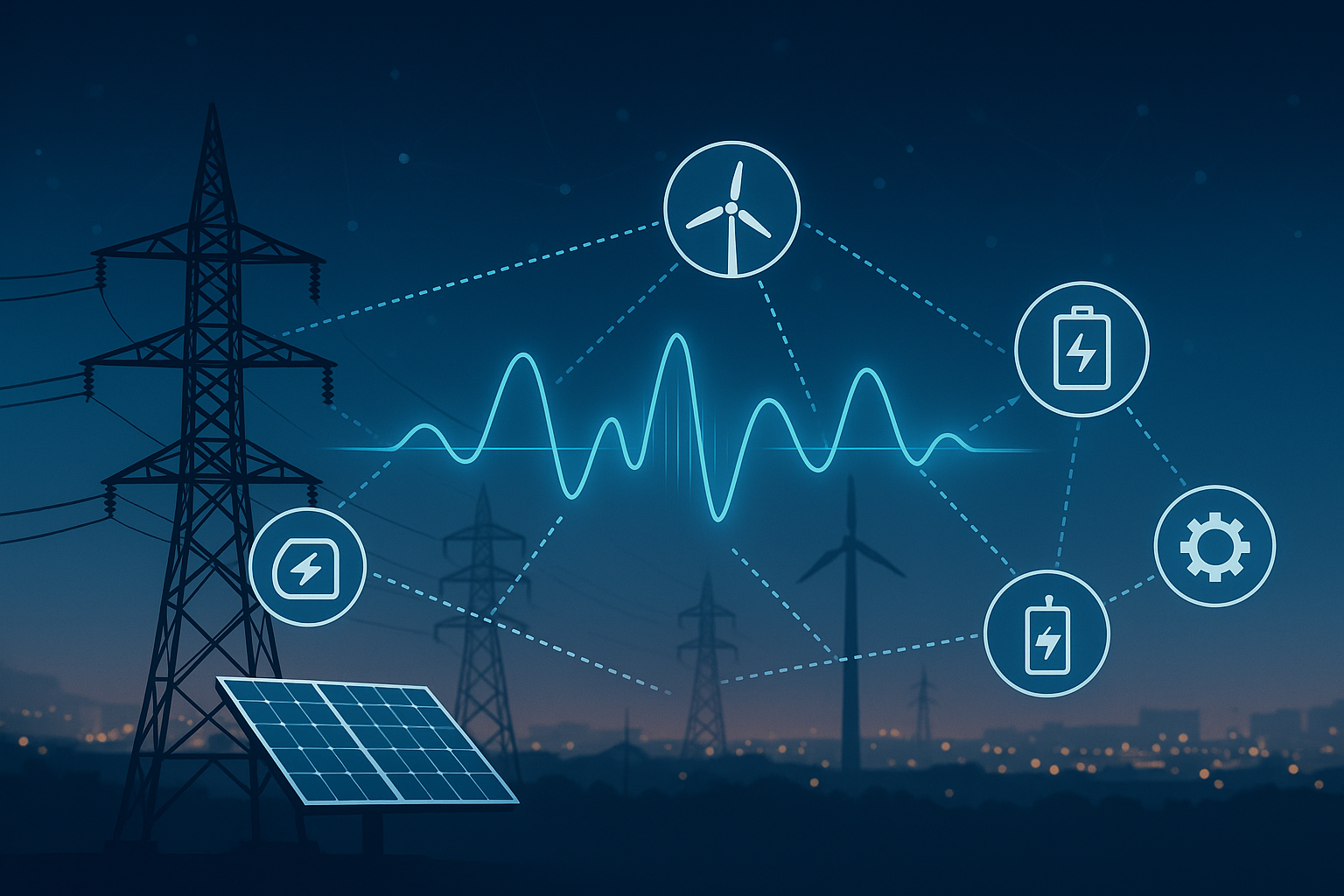Utility-Scale Solar Farm Engineering & Maintenance Services
Welcome to Keentel Engineering’s comprehensive suite of solar engineering services tailored for utility-scale solar farms. Our team of licensed engineers delivers full-lifecycle solutions—from initial solar engineering design services and site assessments to electrical maintenance services for solar farms and long-term system optimization.
Whether you’re launching a new solar project or upgrading an existing site, we support you at every stage—ensuring efficiency, compliance, and maximum energy yield.

Why Choose Keentel for Utility-Scale Solar Projects
At Keentel Engineering, we specialize in large scale solar engineering services near me that combine deep technical expertise with practical field knowledge. Our licensed engineers have decades of experience supporting solar EPCs, developers, and asset owners through every project phase.
We offer:
- Code-compliant, utility-accepted system designs
- Interconnection and substation coordination
- Grid stability and power quality assessments
- Reliable system commissioning and diagnostics
- NERC-compliant designs and testing
Every solar farm project is unique. That’s why we bring a customized, performance-focused approach backed by modern tools, utility insight, and responsive service.
Let's Discuss How to Optimize Your Next Project
Submit
We will get back to you as soon as possible.
Please try again later.
Our Electrical Engineering Capabilities for Solar Farms
At Keentel Engineering, we offer comprehensive electrical engineering services tailored to utility-scale solar farms. Our process covers the entire lifecycle—from feasibility studies to long-term optimization—ensuring your project performs reliably and meets every regulatory and grid requirement. Whether you're designing a new solar farm or upgrading an existing one, Keentel delivers trusted engineering solutions that maximize reliability, efficiency, and compliance.
POI Interconnection Engineering Support
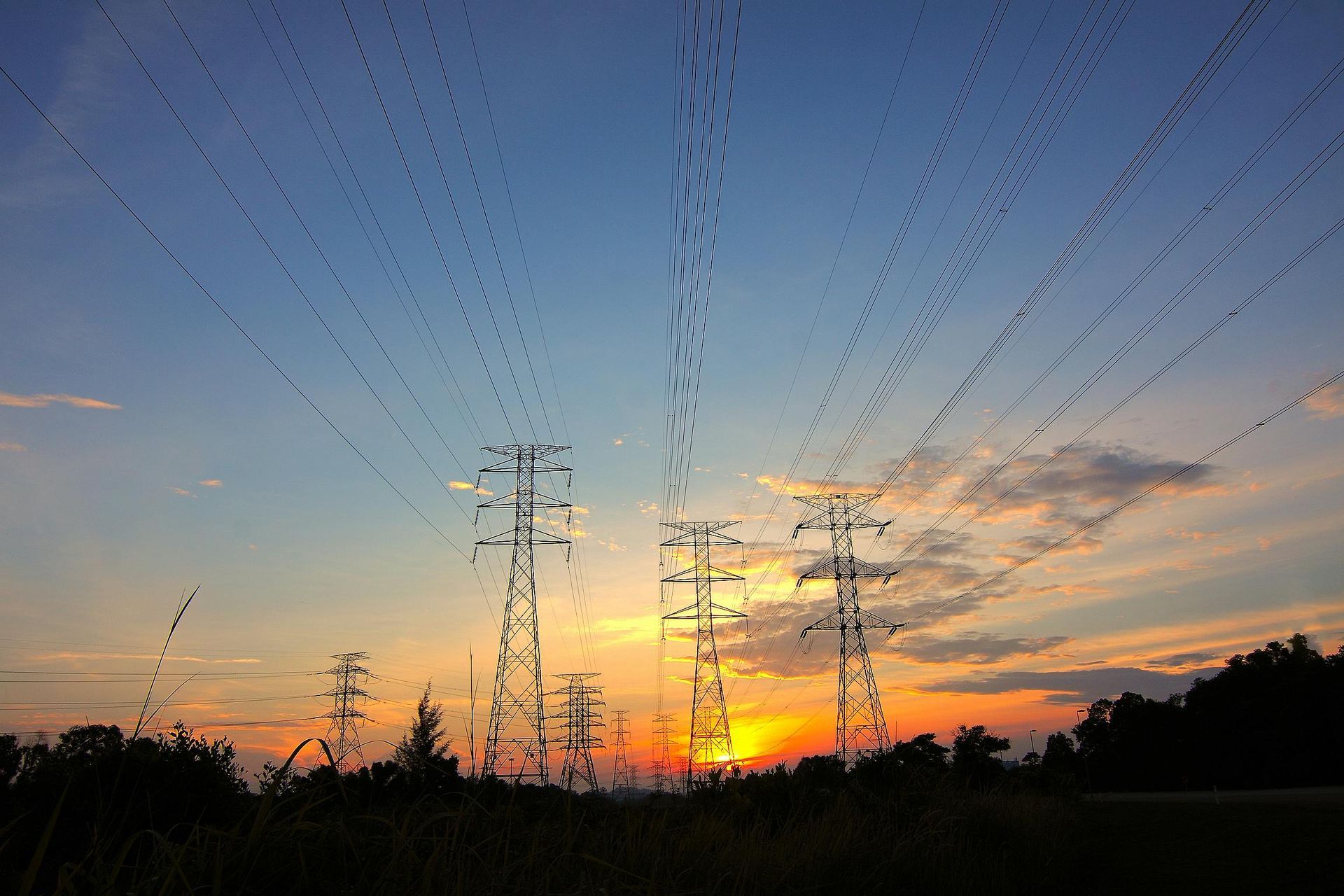
Our skilled and knowledgeable engineering team has a rich history in designing, developing and commissioning various substation and interconnection engineering support projects.
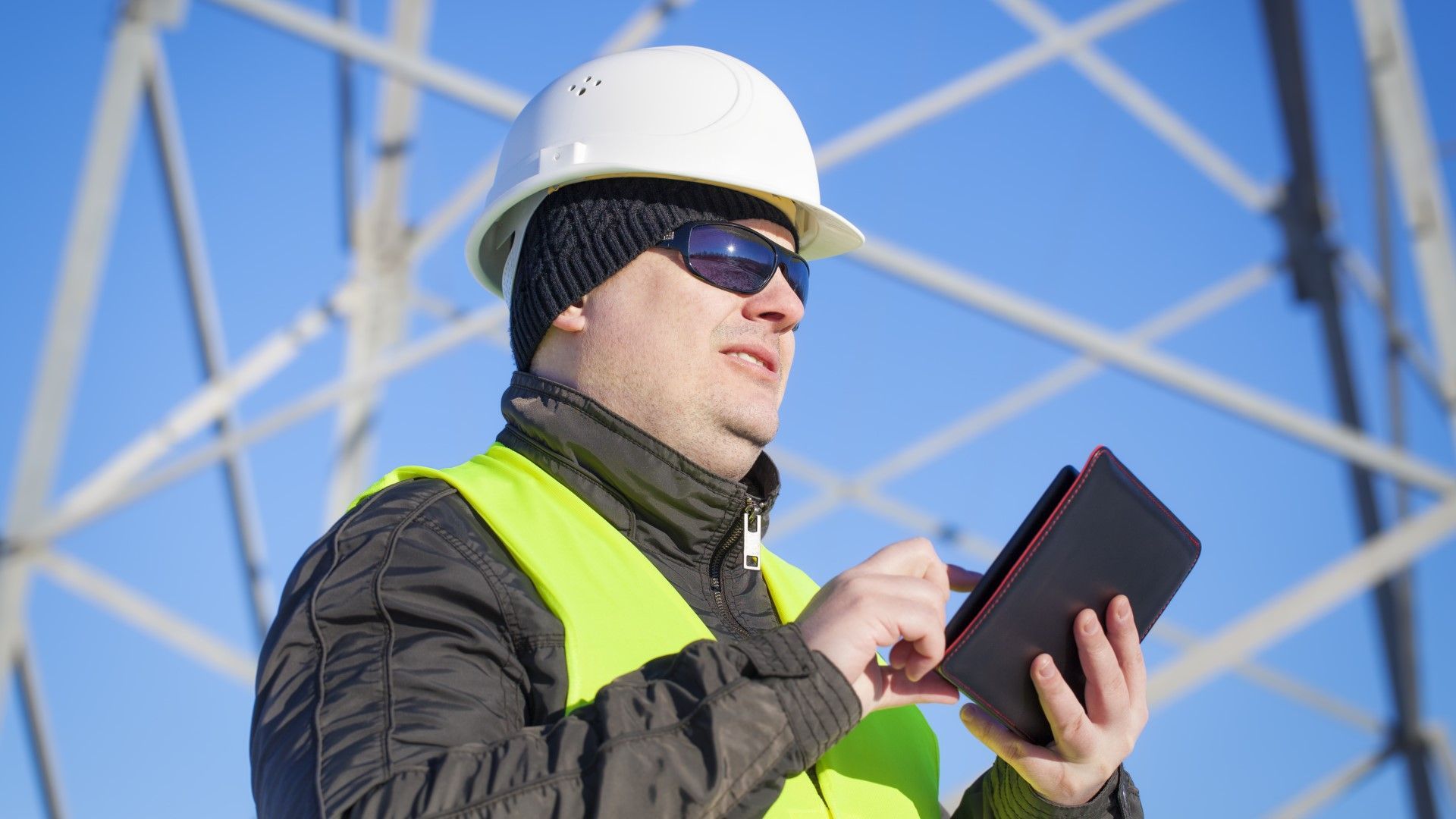
Feasibility Studies and Site Assessments
We begin with in-depth feasibility studies to evaluate solar irradiance, annual energy output, terrain suitability, and grid connectivity. These insights determine whether your proposed site is technically and financially viable before detailed design begins.

Electrical System
Design
Our engineers prepare complete design packages, including array configurations, inverter and transformer sizing, substation integration, and grid interconnection planning. All designs follow NEC, IEEE, and utility-specific requirements to ensure acceptance and reliability.
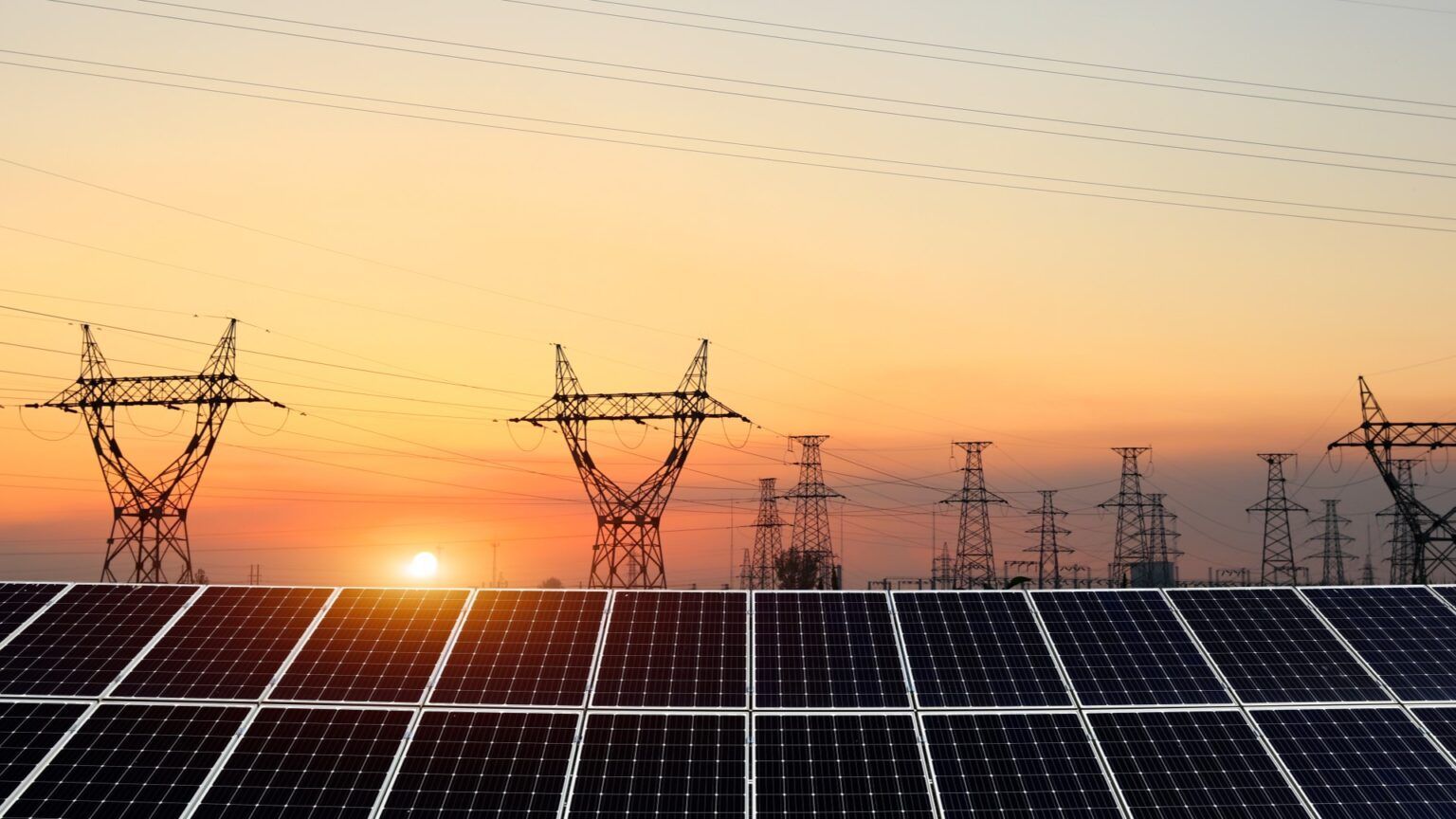
Solar Panel and Equipment Selection
We specify equipment—including solar modules, inverters, combiner boxes, and transformers—based on performance, reliability, and cost-effectiveness. Our recommendations are always vendor-neutral and focused on long-term ROI.
POI Interconnection Engineering Support

Our skilled and knowledgeable engineering team has a rich history in designing, developing and commissioning various substation and interconnection engineering support projects.
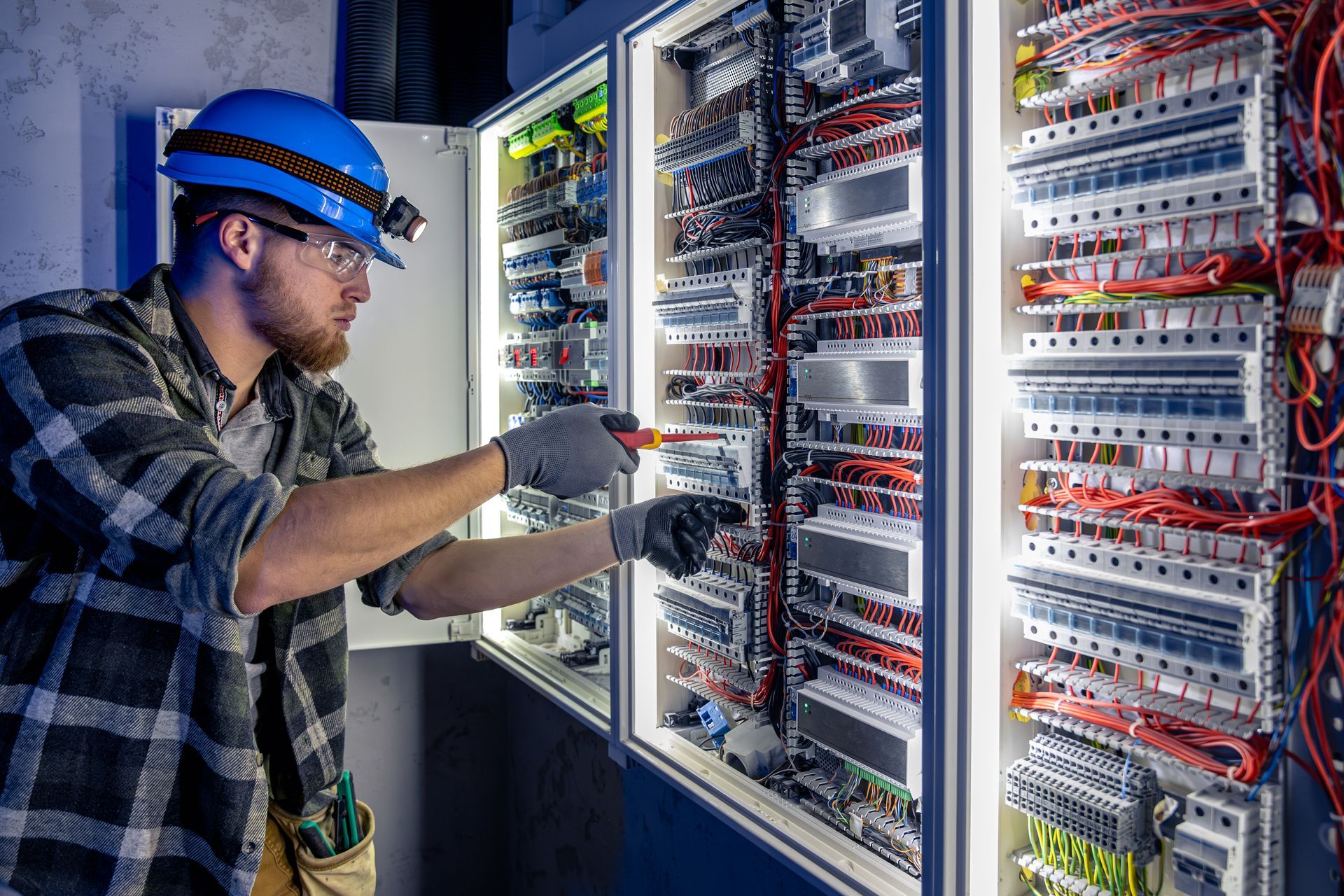
Installation and
Commissioning
We oversee electrical infrastructure deployment, validate performance through onsite testing, and prepare systems for safe grid tie-in. This includes inverter validation, SCADA checks, and utility documentation.
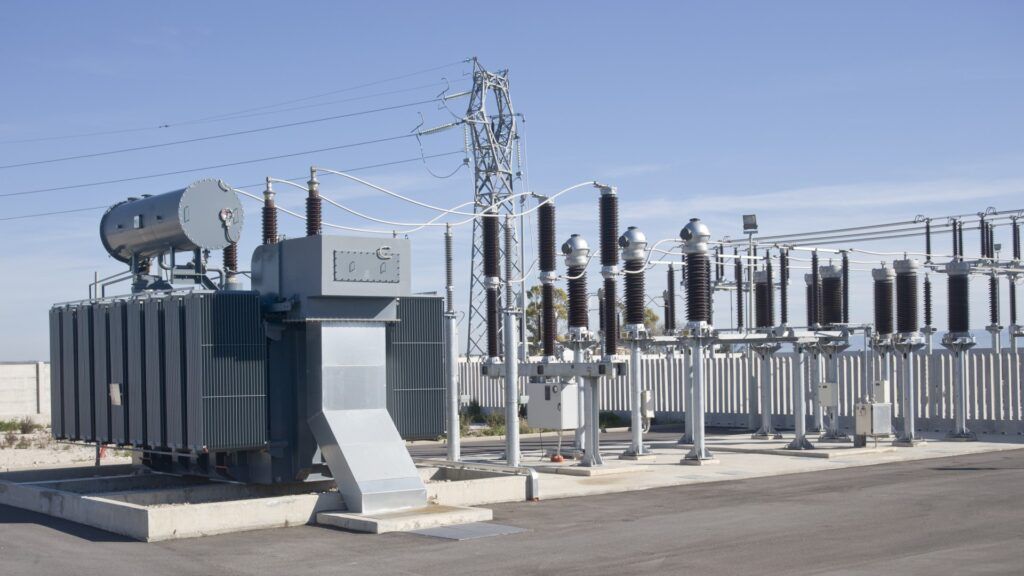
Grid Connection and Interfacing
We manage utility coordination, ensure grid code compliance, and design seamless power export pathways from your solar farm to the transmission network—streamlining the approval and connection process.

Power Quality and System Stability Analysis
Voltage and frequency behavior are carefully modeled and managed to ensure system stability, especially when integrating battery storage or reactive power support.
POI Interconnection Engineering Support

Our skilled and knowledgeable engineering team has a rich history in designing, developing and commissioning various substation and interconnection engineering support projects.
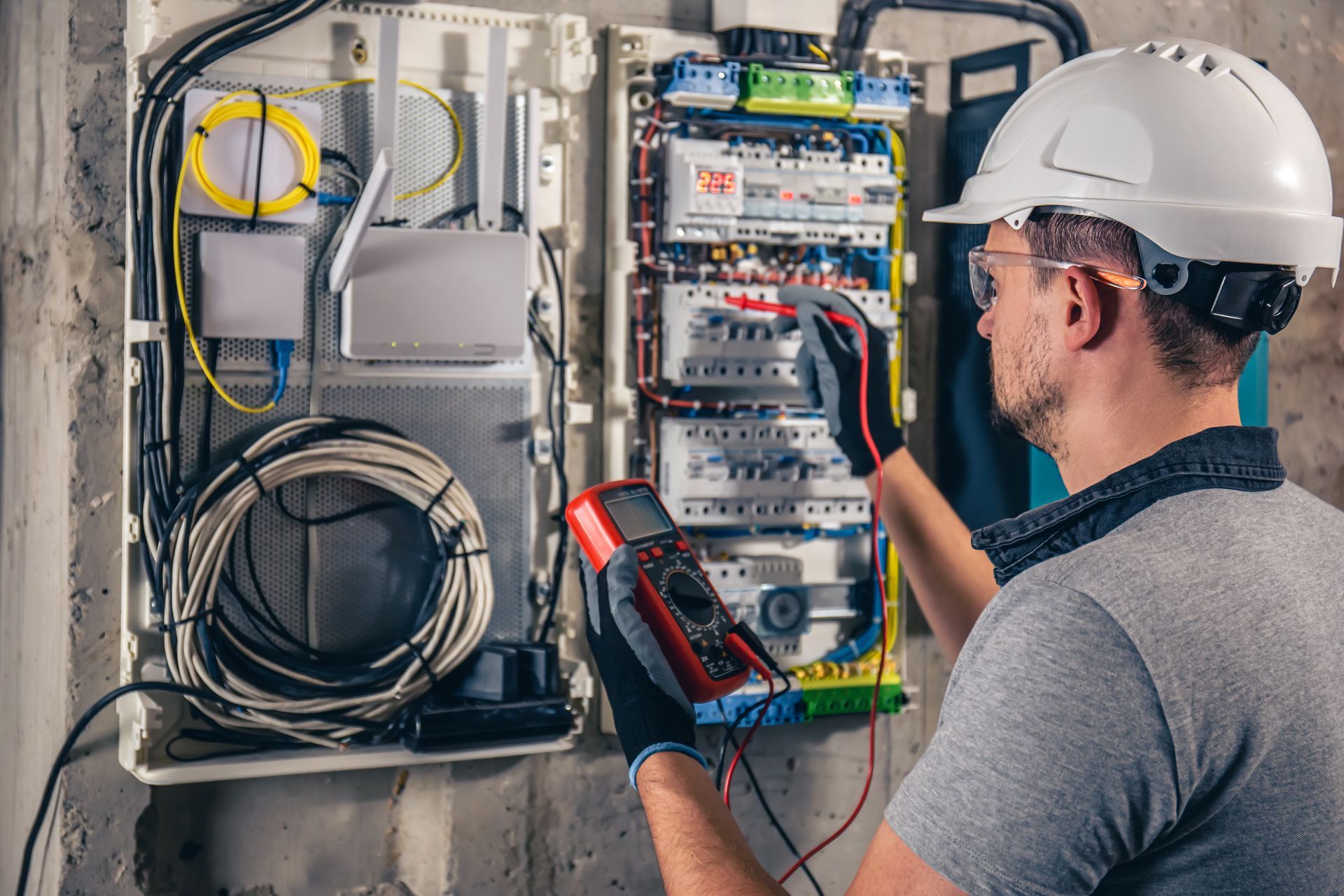
Electrical Maintenance and Monitoring
We provide scheduled inspections, remote monitoring setup, and performance diagnostics to minimize downtime and extend the lifespan of your solar electrical systems.

Performance Optimization
Through real-time data and performance testing, we fine-tune system operation to boost energy yield and maximize ROI. For older systems, we offer retrofits to modernize technology and meet evolving regulations.

Upgrades and
Retrofits
Stay ahead of regulatory shifts and tech advancements with our scalable retrofit services that modernize your solar electrical infrastructure.

Utility-Scale Solar Project Design & Feasibility
Successful utility scale solar project design starts long before construction—with strategic planning and data-driven assessments that determine site viability.
At Keentel Engineering, our solar engineering design services begin with in-depth feasibility studies that evaluate:
- Solar irradiance and projected annual energy yield
- Terrain and geotechnical suitability (soil, slope, drainage)
- Proximity to POI (Point of Interconnection) for grid access
- Regulatory, zoning, and permitting requirements
Once the site is approved for development, our engineers develop complete electrical design packages that cover:
- Array layout optimization and underground/overhead cabling
- Inverter, combiner, and switchgear configuration and sizing
- Substation integration plans and grid interconnection diagrams
- Standards compliance (NEC, IEEE, utility-specific requirements)
This early-stage process ensures your solar farm project is technically sound, cost-efficient, and aligned with utility expectations—helping reduce rework and secure faster approvals.
Electrical System Design & Grid Interconnection
An efficient solar farm depends on a well-designed electrical system that safely delivers power from the array to the grid. Our solar farm engineering services include complete electrical layout development, interconnection planning, and system protection studies.
We ensure your system meets utility, state, and federal requirements—minimizing delays and ensuring operational success.
Our electrical system design services include:
- Array-to-inverter wiring diagrams and conduit sizing
- Combiner box and DC collection layout
- AC collection, inverter skid layout, and transformer sizing
- Substation design and POI interconnection engineering
- Relay protection coordination and SCADA interface planning
We also provide solar farm electrical maintenance services post-commissioning—ensuring your system operates reliably, with minimal downtime.

Solar + Battery Storage Integration
As grid demands and energy policies evolve, combining solar generation with energy storage is increasingly essential. Keentel Engineering offers solar + energy storage engineering services for utility scale projects, enabling you to maximize revenue, store surplus power, and improve grid responsiveness.
Benefits of integrating utility-scale BESS (Battery Energy Storage Systems):
- Peak shaving – Use stored energy during high-rate times to reduce costs
- Load shifting – Store power during the day, discharge at night
- Grid support – Provide reactive power, voltage control, and black start capability
- Revenue stacking – Combine energy arbitrage, capacity payments, and frequency response
We coordinate:
- Battery system sizing and siting based on your generation profile
- Control system integration for seamless solar–storage operation
- Substation upgrades and inverter compatibility reviews
- NERC compliance preparation for storage-enabled systems
Explore our full Utility-Scale Battery Storage solutions.
Commissioning & Grid Tie-In
Before any utility-scale solar farm begins exporting power, it must pass rigorous commissioning protocols and meet utility requirements for grid interconnection. At Keentel Engineering, we manage this critical transition phase with precision and full regulatory alignment.
Our commissioning and grid interconnection services include:
- Functional testing of inverters, transformers, and switchgear
- Relay protection validation and grid synchronization checks
- SCADA system setup and remote monitoring integration
- Compliance documentation for utility and ISO approval
- End-to-end coordination with utilities for final sign-off
We also prepare utility scale solar diagram packages and one-line schematics that simplify utility review and streamline final connection approvals.

Performance Testing & Optimization
After commissioning, ongoing performance monitoring is essential to ensure your solar farm delivers optimal energy output and ROI. Keentel Engineering offers advanced testing and tuning to help operators track, evaluate, and improve system performance.
Our performance optimization process includes:
- IV curve tracing and degradation analysis
- Real-time production monitoring and benchmark comparisons
- Identifying underperforming strings, inverters, or modules
- Implementing corrective actions such as reconfiguration or firmware updates
- Preparing reports for asset managers and compliance auditors
We support utility scale solar plant performance testing using both field and digital tools—ensuring your system maintains long-term energy yield and compliance.

NERC Compliance & Electrical Reliability
Grid-connected solar farms must meet strict reliability standards to operate safely and avoid penalties. At Keentel Engineering, we provide engineering and documentation support for NERC compliance—including key protection, performance, and modeling requirements.
We support solar developers and asset owners with:
- NERC O&P-693 compliance documentation
- Dynamic model validation and system response testing
- Protection system design aligned with PRC standards
- Relay coordination studies and event simulation
- Periodic reporting and audit readiness
Our compliance services are designed to reduce risk, improve grid reliability, and help your facility pass NERC audits with confidence.
Explore our full
NERC Compliance support services.

Substation Design & Power System Studies
A reliable substation is the backbone of any utility-scale solar farm. Keentel engineers design substations and perform power system studies that meet utility, ISO, and FERC requirements—ensuring safe and efficient energy delivery.
Our services include:
- EHV, HV, and MV substation design
- Protection and control panel schematics
- One-line diagrams and wiring plans
- Power flow and short circuit analysis
- Arc flash studies and grounding analysis (IEEE 80, 81)
Our in-house team delivers utility-accepted engineering packages that support POI approval, interconnection, and long-term operational safety.
Learn more about our
Substation Design services.

Why Choose Keentel Engineering?
27+ years of experience in renewable and utility-scale electrical engineering
Proven track record across large-scale solar, wind, and hybrid energy projects
Experts in solar farm engineering services and grid integration
Client-first approach with transparent project management
Commitment to sustainable, eco-conscious engineering practices
FAQ for Utility-Scale Solar Farm Engineering Services
1. What is a utility-scale solar farm?
A utility-scale solar farm is a large solar power generation facility designed to produce significant amounts of electricity, typically in the range of several megawatts (MW) to gigawatts (GW). These solar farms are connected directly to the electrical grid and supply power to utilities, industries, or large-scale consumers. They typically consist of thousands of solar panels, inverters, and associated infrastructure spread across large areas of land.
2. What services do you offer for utility-scale solar farm engineering?
Our Utility-Scale Solar Farm Engineering Services include:
- Site Assessment & Feasibility Studies: Evaluating land conditions, solar resource availability, and grid connection options.
- System Design: Creating detailed designs for solar arrays, electrical components, inverters, transformers, and associated infrastructure.
- Electrical Design & Analysis: Conducting power flow studies, short-circuit analysis, protection coordination, and interconnection studies.
- Project Management: Overseeing the entire project lifecycle, from planning and procurement to construction and commissioning.
- Permitting & Regulatory Compliance: Ensuring that the project complies with local, state, and federal regulations, including environmental and safety standards.
- Procurement Assistance: Helping with the selection of suppliers, contractors, and equipment, ensuring that all materials meet project specifications.
- Construction Supervision & Quality Control: Ensuring that construction is completed on time, within budget, and to the required quality standards.
- Commissioning & Testing: Overseeing the start-up and testing phases to ensure the solar farm operates at optimal performance levels.
3. Why is engineering important for a utility-scale solar farm project?
Engineering plays a critical role in the success of a utility-scale solar farm. Proper design and planning ensure that the system is efficient, reliable, and cost-effective. Engineering services are essential for optimizing energy production, ensuring compliance with grid codes, addressing safety concerns, and minimizing operational costs. A well-engineered solar farm also ensures long-term performance and sustainability.
4. What factors are considered during the site assessment for a utility-scale solar farm?
Site assessments are essential for determining whether a location is suitable for a utility-scale solar farm. Key factors we evaluate include:
- Solar Resource Availability: Ensuring the location receives sufficient sunlight throughout the year.
- Land Topography and Size: Evaluating the land’s suitability for solar panel installation and access.
- Environmental Impact: Assessing the potential environmental impact of the solar farm and obtaining necessary permits.
- Proximity to Grid Infrastructure: Ensuring the site is close to an existing substation or transmission line for easy grid connection.
- Accessibility: Ensuring there is adequate access for construction and maintenance.
- Local Regulations and Zoning: Reviewing local government zoning laws and environmental regulations to ensure compliance.
5. What is involved in the electrical design of a utility-scale solar farm?
The electrical design of a utility-scale solar farm involves:
- Panel Layout and Sizing: Designing the layout of solar panels to maximize energy capture while considering shading, panel orientation, and space utilization.
- Inverter Design: Selecting and sizing inverters to convert the DC power generated by solar panels into AC power compatible with the grid.
- Power Distribution: Designing the electrical distribution system, including wiring, transformers, and switchgear, to safely and efficiently carry the generated electricity.
- Grid Connection & Interconnection Studies: Evaluating how the solar farm will connect to the grid, including power flow analysis, fault studies, and protection system design to ensure a stable and secure interconnection.
- System Monitoring: Designing the monitoring system to track system performance, detect faults, and optimize energy generation.
How do you ensure that the solar farm meets regulatory requirements?
We work closely with local authorities and regulatory bodies to ensure that the solar farm complies with all applicable environmental, safety, and grid codes. This includes obtaining the necessary permits, conducting environmental impact assessments (EIAs), and ensuring the design meets local grid interconnection standards. We also assist with any zoning or land use applications that may be required for project approval.
7. What is involved in the construction phase of a utility-scale solar farm?
During the construction phase, we oversee the installation of solar panels, electrical systems, inverters, transformers, and supporting infrastructure. Our services include:
- Construction Management: Coordinating activities to ensure the project is completed on schedule and within budget.
- Quality Control: Conducting inspections and ensuring that all work complies with project specifications, safety standards, and regulatory requirements.
- Site Safety: Ensuring that safety protocols are followed during the installation process to protect workers and the environment.
8. How do you handle the commissioning and testing of the solar farm?
Commissioning and testing are critical steps in ensuring that the solar farm operates efficiently and meets all performance specifications. Our services include:
- Pre-commissioning inspections: Verifying that all components are installed correctly and that the system is ready for testing.
- Performance Testing: Verifying that the solar farm is generating the expected amount of electricity and that all systems are functioning as designed.
- Grid Integration Testing: Ensuring that the system operates harmoniously with the local grid and meets grid code requirements.
- System Optimization: Identifying and addressing any inefficiencies or issues to
- optimize system performance for maximum energy production.
9. What types of environmental considerations are addressed in a utility-scale solar farm project?
We evaluate and address a variety of environmental factors, such as:
- Wildlife Protection: Ensuring that the project does not disrupt local wildlife or ecosystems.
- Water Usage & Drainage: Managing water runoff, stormwater drainage, and the impact on local water systems.
- Vegetation and Habitat: Assessing the impact of solar panel installations on local plant life and habitats.
- Environmental Impact Assessments (EIAs): Conducting EIAs to ensure compliance with environmental regulations and obtain necessary approvals.
10. What are the benefits of a utility-scale solar farm for the community?
Utility-scale solar farms provide multiple benefits to local communities, including:
- Clean Energy Production: Reducing reliance on fossil fuels and contributing to cleaner air and a lower carbon footprint.
- Job Creation: Generating employment opportunities during construction, operation, and maintenance phases.
- Economic Growth: Contributing to local economies through tax revenue, land lease agreements, and investments.
- Grid Reliability: Increasing grid stability and capacity by integrating renewable energy into the grid.
11. How do you manage the project timeline and budget for utility-scale solar farm projects?
We utilize effective project management practices to ensure that utility-scale solar farm projects are completed on time and within budget. Our approach includes:
- Detailed project planning and scheduling to allocate resources efficiently.
- Cost management strategies to track expenses and avoid overruns.
- Risk management to identify potential delays and cost overruns and develop mitigation plans.
- Ongoing communication with stakeholders to ensure alignment and address any challenges that arise.
12. How much do your utility-scale solar farm engineering services cost?
The cost of our utility-scale solar farm engineering services varies depending on the size and complexity of the project. We offer customized pricing based on the scope of work, including design, permitting, construction management, and commissioning. We provide cost-effective solutions tailored to your project’s specific needs while ensuring the highest quality and compliance standards
13. What is included in electrical maintenance for utility-scale solar farms?
We provide inspections, performance diagnostics, inverter testing, thermal imaging, and rapid fault resolution to ensure optimal energy output and uptime.
14. How do solar engineering services impact long-term ROI?
Proper system design, layout optimization, and compliance reduce energy losses, increase efficiency, and help solar farms achieve higher returns over their lifespan.
15. What makes a solar farm “utility-scale”?
A utility-scale solar farm typically produces 20 megawatts (MW) or more of electricity and connects directly to the high-voltage transmission grid. These projects are built on large land areas and are designed to supply energy to utilities or major power purchasers—not individual homes or businesses.
16. How does a solar farm support grid power quality?
Utility-scale solar farms can help stabilize the electrical grid by managing voltage levels and supplying reactive power. When properly engineered, they improve grid performance and reduce the risk of fluctuations or outages.
17. Can energy from solar farms be stored for nighttime use?
Yes. By integrating battery energy storage systems (BESS), solar farms can store excess power generated during the day and discharge it when needed—such as at night or during high-demand periods. This makes solar a more reliable and flexible energy source.
18. How long does a utility-scale solar farm last?
Most utility-scale solar farms are built to last 30 to 40 years, with panel warranties typically covering 25 years. After their service life, components can be replaced or the system can be decommissioned and the land restored.
19. Do utility-scale solar farms impact wildlife or water drainage?
When properly designed, solar farms have minimal impact on wildlife and can even help with stormwater management. Many projects include erosion control measures and use low-impact vegetation to support natural water flow and local habitats.


